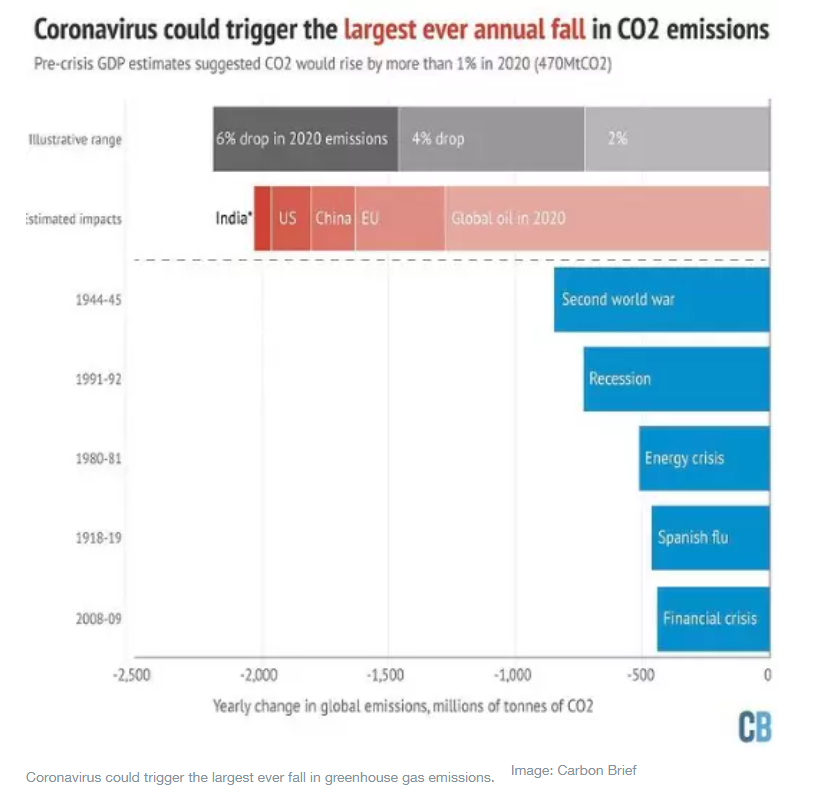by Mikhail Karisalov*
Disruption of global supply chains and lockdowns revealed renewables as a better alternative to fossil fuels and accelerated the transition to a circular economy. In the coming years, we will likely witness substantial changes in technological patterns globally. But as reliance on oil and gas is set to decline, other industries, such as petrochemicals, will increase their economic footprint.
Our understanding of such trends supplies us with more time to prepare for a better future when industries and technologies increasingly rely on their corporate social responsibility and environmental, social and governance (ESG) policies.
Oil will remain with us for years, but its era is inevitably coming to an end. Studies show that global oil demand will not regain the levels seen last year, and it could soon fall rapidly in the face of more decisive climate action – by 10% this decade and by 50% over the next 20 years.
Green technologies are set to play more significant roles in our economies. Disruption of global supply chains and economic volatility revealed the vulnerability of fossil fuels as an industry. In contrast, renewables turned out to be more resilient. Their broader implementation has become more urgent because of humankind’s negative impacts on the environment and ongoing climate change.

Renewables already account for almost 30% of global electricity output, and the world could be on course for the biggest ever annual fall in greenhouse gas emissions.
Currently, there is no shortage of state-run programmes striving to facilitate the transition to a green economy. The Green Deal, announced last December by the European Commission, is the ambitious plan for Europe to become carbon-neutral by 2050, accelerating economic transformation and reliance on green technologies. Countries like Germany, Norway, Canada and Australia introduced their hydrogen strategies and pledged to boost their investments into renewables.
Changes also occurred at the corporate level. During the past year, major global corporations increased their investments in renewables. BP, a major oil and gas company, wants 50 gigawatts (GW) of renewables in its portfolio by 2030, up from just 2.5 GW now. Companies like Shell and Rosneft are also aiming to boost their commitment to green causes.
The transition to a green economy will impact the global petrochemicals industry. The market will continue growing while emerging economies will witness a rise in the number of petrochemical companies. Simultaneously, there are increasing concerns about the reliance on plastic and its environmental impact.
Today it is evident that we need a systems-level approach from companies and governments worldwide to address plastic and protect our environment.
Last year there was shared anticipation about the eventual decrease of plastic consumption, but the pandemic resulted in a resurgence. The material turned out to be sanitary and effective in protecting against the transmission of COVID-19, and its use in healthcare and related services has been hitting new highs.
Existing limitations on waste services consistently raise pollution concerns. Disrupted waste management and recycling sector will take time to recover. We will not be able to handle massive volumes of post-pandemic plastic correctly and on time.
We need more complex recycling practices and policies promoting responsible waste management that rely on extensive networks of transnational ties.
It should be clear to everyone that environmental policies must emerge as a universal action plan. We need to put in place the infrastructure and robust regulatory incentives to boost recycling. Today, less than 10% of all plastics are recycled. Corporations and governments should take a stronger stance on this issue.
Actions against plastic pollution should be combined with more effective handling of the petrochemicals industry. Like any other industry operating amid the disruption of the Fourth Industrial Revolution and the challenges posed by climate change, major petrochemical players should strictly commit to ESG policies.
Given the growing importance of the industry, countries and corporations worldwide should make coordinated efforts to shape a comprehensive legal framework and introduce improved regulatory incentives.
The petrochemicals industry has the ability to reduce greenhouse gas emissions. From 1990 to 2016, the European chemicals industry cut its GHG emissions by 60.5% while increasing its production by 85%. Chemical sector emissions of CO2 are set to decline by 45% by 2050 under a ‘clean technology scenario’, while demand for basic chemicals is anticipated to grow by 40%.
Companies should take more proactive steps and endorse responsible consumption and boost investments into research and development to help create new long-term and sustainable solutions.
Regulation should encourage the production of polymers with improved recyclable qualities that would make it easier to put used plastics back into our economy and invest in cutting the industry’s carbon footprint. The use of clean technologies includes technologies for capturing, using and storing carbon, switching to gas fuels, improving energy efficiency, recycling plastic and using alternative raw materials.
The development of effective measures against plastic pollution and the introduction of stronger regulatory incentives for the petrochemicals industry is a complex process that requires a systems-level approach on a global scale. Sustainability, circular economy and a zero emissions target will only be achieved by prioritizing our actions and policies together for the most significant long-term environmental good.
*Chairman of the Management Team, CEO, OOO Sibur
**first published in: www.weforum.org




 By: N. Peter Kramer
By: N. Peter Kramer

